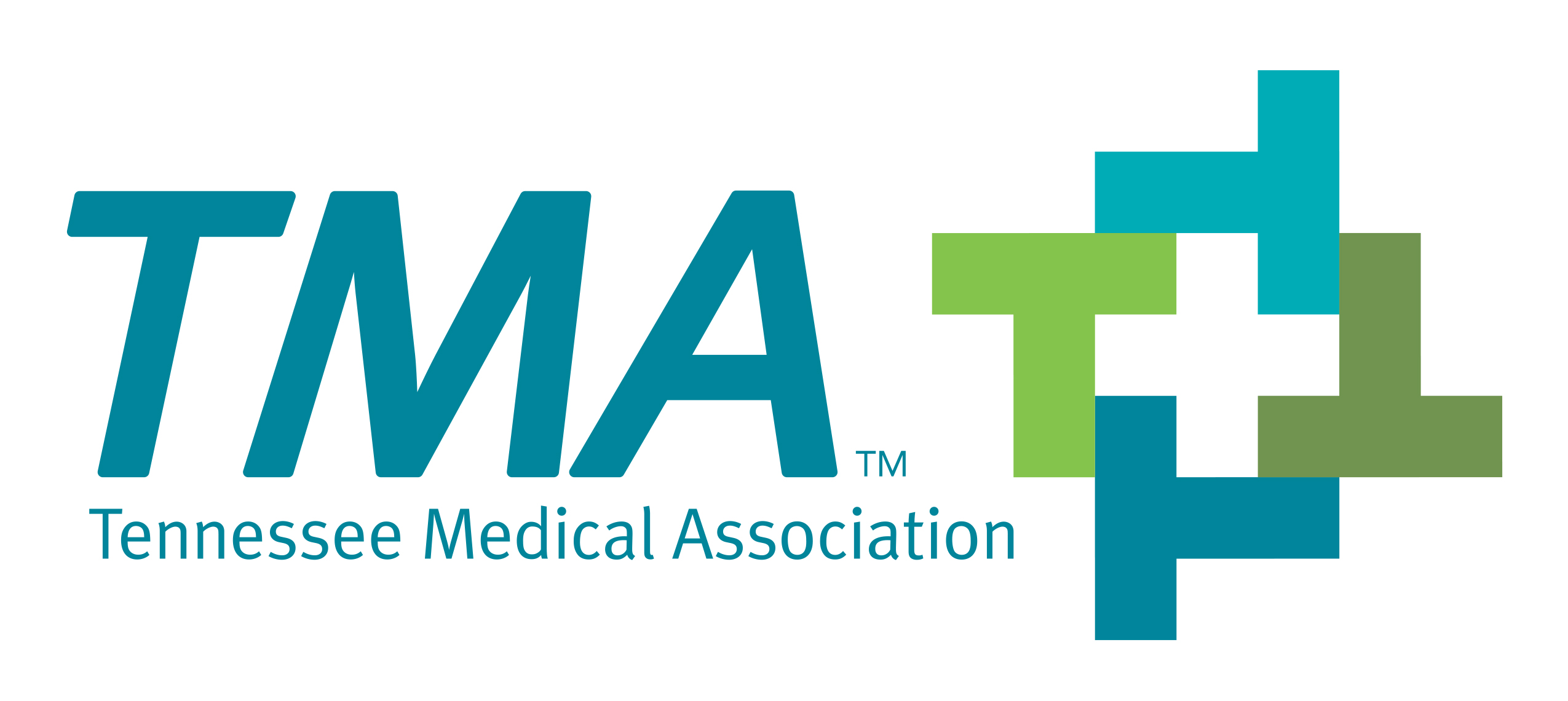Group Medical Visits: New Approaches to Healthcare in Tennessee

Group Medical Visits: New Approaches to Healthcare in Tennessee
The Tennessee Medical Association (TMA) House of Delegates adopted a resolution in 2024 for TMA to study and provide members with more information and resources about Group Medical Visits (GMVs) to enhance healthcare delivery across the state.
What are Group Medical Visits
GMVs are a growing healthcare model that bring together patients with similar conditions to meet with a healthcare provider, often supported by a multidisciplinary team. These visits provide both private consultations and group sessions, offering a unique opportunity for patients to share experiences, ask questions and learn from each other. Common topics include disease management, lifestyle changes and medication adherence, guided by healthcare professionals such as doctors, nurses and dietitians.
Particularly beneficial for managing chronic conditions like diabetes, hypertension and asthma, GMVs foster a supportive community that improves patient engagement, boosts self-care and provides emotional support. By enabling patients to interact in a group setting, these visits help demystify medical advice and encourage more active participation in healthcare. Additionally, healthcare providers can address common issues in one session, enhancing efficiency and potentially reducing the need for frequent individual visits.
Studies show that GMVs have led to better patient outcomes in other regions of the country, with improved management of chronic conditions and even better clinician well-being. In summary, group care visits are a patient-centered approach that combines medical care with peer support, education, and community, leading to comprehensive and holistic healthcare delivery.
HIPAA concerns
Group care visits, while beneficial, raise specific concerns regarding the Health Insurance Portability and Accountability Act (HIPAA). HIPAA protects patient privacy and ensures the confidentiality of health information. Here are some key concerns and strategies to address them:
1. Patient Confidentiality
- Concern: During group visits, multiple patients are present, potentially exposing personal health information (PHI) to others.
- Mitigation: Clearly explain to all participants that the group setting may involve sharing some personal information. Obtain written consent acknowledging this before participation. Encourage respect for privacy within the group.
2. Data Security
- Concern: Handling of medical records and notes during and after group visits may lead to unauthorized access to PHI.
- Mitigation: Ensure that all records are securely stored and accessed only by authorized personnel. Use encrypted systems for electronic records and implement strict access controls.
3. Disclosure of Sensitive Information
- Concern: Patients might inadvertently disclose more personal information than intended during group discussions.
- Mitigation: Train facilitators to guide discussions carefully and provide options for private consultations if sensitive issues need to be addressed individually.
4. Consent for Participation
- Concern: Participants may not fully understand the implications of sharing health information in a group setting.
- Mitigation: Use clear, comprehensive consent forms that outline what information may be shared and the purpose of the group visits. Ensure patients are aware they can withdraw at any time.
5. Use of Technology
- Concern: Virtual group visits can expose PHI to additional risks such as hacking or unauthorized recordings.
- Mitigation: Use secure, HIPAA-compliant telehealth platforms for virtual visits. Inform patients about best practices for maintaining privacy during online sessions, such as using private, secure internet connections and avoiding public spaces.
6. Minimizing Incidental Disclosures
- Concern: Incidental disclosures can occur, such as overhearing another patient’s information.
- Mitigation: Structure the physical or virtual environment to minimize such risks. For in-person visits, use room dividers or soundproofing where possible. For virtual visits, advise patients to find a private location.
7. Documentation and Record Keeping
- Concern: Ensuring that group visit notes are properly attributed and do not contain excessive or irrelevant information about other participants.
- Mitigation: Maintain separate medical records for each participant, and document only relevant clinical information.
8. Training and Policies
- Concern: Staff may not be adequately trained to handle the unique privacy challenges of group visits.
- Mitigation: Provide regular training for all staff involved in group visits on HIPAA requirements and best practices for protecting patient privacy.
Addressing these concerns effectively can help ensure that group care visits comply with HIPAA regulations while maintaining a supportive and secure environment for patients.
For more information:
Peer reviewed Sources
Group medical visits (GMVs) have been the subject of various peer-reviewed studies evaluating their efficacy in managing chronic conditions. Here are some notable findings:
- Effectiveness in Primary Care: A systematic review published in BMC Medicine analyzed 29 randomized controlled trials comparing GMVs to usual care in primary settings. The study found minimal differences in health outcomes or healthcare service utilization between GMVs and traditional care in the short term. Notably, participants in GMVs exhibited slightly lower diastolic blood pressure, but no significant differences were observed in other health metrics.
- Diabetes Management: Research published in the Canadian Medical Association Journal assessed the impact of GMVs on diabetes care. The study reported that GMVs had a positive effect on clinical outcomes, including significant reductions in glycated hemoglobin (HbA1c) levels, indicating improved blood sugar control among participants.
- Women's Reproductive Health: A systematic review in BMC Health Services Research examined the feasibility and efficacy of implementing GMVs for women's reproductive health conditions. The review suggested that GMVs are a feasible approach and may improve health outcomes for women with specific reproductive health issues.
- Specialist Care Access: An article in Frontiers in Health Services discussed the potential of GMVs to enhance access to specialist care, particularly in psychiatric services. The study highlighted that GMVs are acceptable and effective in managing chronic medical diseases and could be adapted to psychiatric care to increase access, reduce stigma, and lower costs.
- Clinician Well-being: A study in the Journal of Patient Experience explored the impact of GMVs on clinician well-being. The findings indicated that GMVs might contribute to improved clinician satisfaction and reduced burnout, suggesting benefits beyond patient outcomes.
Medical Association Resources
Medical associations offer a variety of resources to assist healthcare providers in implementing group medical visits (GMVs), also known as shared medical appointments. Here are some notable resources:
Professional Organizations and Associations
- American Medical Association (AMA): The AMA provides resources and support for practices looking to innovate their care models, including templates for group visit implementation and advice on billing and coding.
- Institute for Healthcare Improvement (IHI): IHI offers training programs, white papers, and webinars on patient-centered care models, including shared medical appointments.
- American Academy of Family Physicians (AAFP) – Group Visits 101
This resource provides a comprehensive overview of group visits, including their benefits, implementation strategies, and practical considerations for family physicians. - AAFP – Medical Coding for Group Visits - AAFP offers guidance on appropriate coding practices for group visits, addressing common questions about billing and reimbursement to ensure compliance and proper compensation.
- American College of Physicians (ACP) – Group Visit Billing Information
ACP provides insights into billing procedures for group visits, discussing the lack of standardized codes and offering advice on navigating billing challenges associated with GMVs. - Agency for Healthcare Research and Quality (AHRQ) – Strategy 6M: Group Visits
AHRQ discusses the role of group visits in enhancing access to care, detailing benefits, implementation steps, and considerations for integrating GMVs into practice.
Additional Resources
Developing group care models in medical practices requires a combination of resources that address clinical, operational, and educational aspects. Here are some of the best resources to help medical practices implement group care models:
Guidelines and Toolkits
- Center for Medicare & Medicaid Innovation (CMMI) Resources: CMMI provides comprehensive toolkits and guidelines on implementing innovative care models, including group visits. These resources often include best practices, case studies, and evaluation frameworks.
- American Academy of Family Physicians (AAFP): AAFP offers toolkits specifically designed for family physicians interested in group visits, with step-by-step guides on planning, implementing, and evaluating these sessions.
